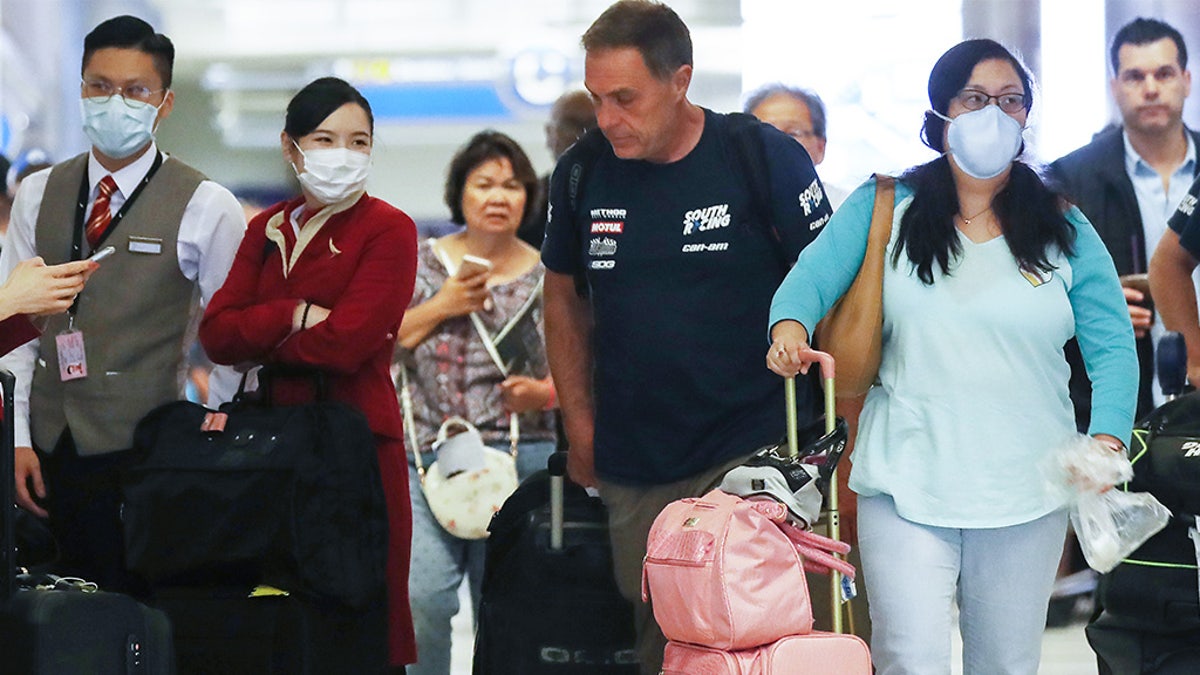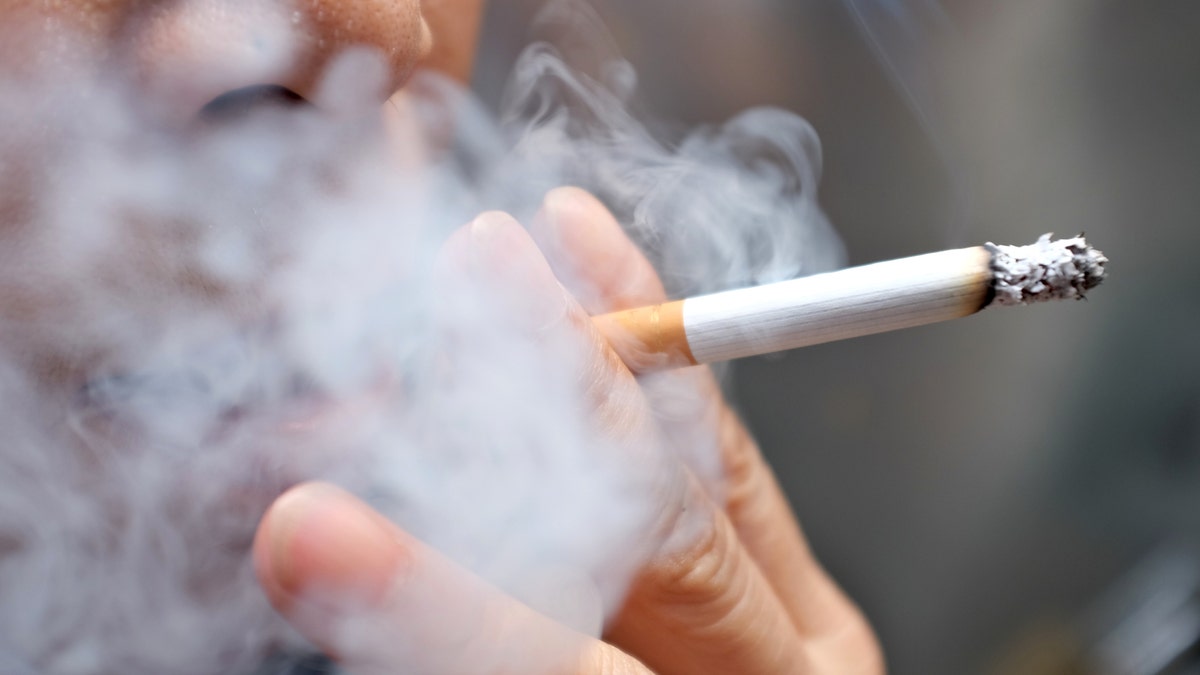Could we see coronavirus outbreak every year like we do with flu strains?
Dr. Marty Makary answers if people will continue to get sick from COVID-19 next flu season
Get all the latest news on coronavirus and more delivered daily to your inbox. Sign up here.
As coronavirus tears through the world, public health professionals and medical experts are working hard to solve the many mysteries surrounding who the novel disease is striking the hardest, and putting together a profile to determine who is more likely to get infected, who is more likely to require intensive care, and who is more likely to succumb to the officially termed COVID-19.
"If you are immunocompromised, such as receiving cancer treatment or recently treated or even perhaps cancer survivor, you are at greater risk for catching the virus and doing poorly," Dr. John Whyte, chief medical officer, WebMD, told Fox News. "Patients with diabetes and heart disease do worse when they get infected. In addition, if you have lung problems such as severe asthma, you are also at greater risk."
CORONAVIRUS SICKENING YOUNG ADULTS, CHILDREN: WE ARE LEARNING 'THAT EVERYONE IS AT RISK'
"Too much alcohol can also contribute to difficulties in fighting infection," Whyte said. "Diabetes, heart disease, kidney and liver problems, respiratory diseases, and even severe obesity can make it much harder to recover if you contract the virus."
A preliminary study from the Carlos III Health Institute in Spain – a country that has more than 94,000 cases and some 8,300 confirmed deaths – shows that slightly more men are being infected, roughly 52 percent compared to 48 percent. However, the analysis showed that the number of males who died was almost double that of their female counterparts.
Subsequently, hormones, too, could potentially be a factor. According to a 2017 review conducted by the University of Iowa and published in the Journal of Immunology, of the mice that were infected with the SARS virus – of which coronavirus is genetically related – the males were more likely to die, and female mice that had their ovaries removed always endured soaring death rates, with estrogen assumed to be an insulating mechanism.

Members of a flight crew from Cathay Pacific Airways (L), wearing protective masks, stand in the international terminal after arriving on a flight from Hong Kong at Los Angeles International Airport (LAX) on February 28, 2020. (Photo by Mario Tama/Getty Images)
Dr. Summer McGee, dean of the School of Health Sciences at the University of New Haven, concurred that, while still yet to be proven, a working theory is that estrogen is again functioning as protection from the coronavirus.
"It will likely be a year or more before we understand the way in which our genetics and our behaviors protected us or exposed us to greater risk with COVID-19," McGee added. "Other than social distancing behavior, of course. We know that works."
From the beginning of the outbreak, which originated in China late last year and rapidly took hold across the globe in recent months, evidence points to the potent influence previous illnesses and underlying conditions have on morbidity rates or rending a case to be critical.
The Spanish study also highlights that 74 percent of patients that died or required intensive care had a lurking health ailment, and 90 percent of deaths were of those aged over 70.
And indeed, the older an individual is, the higher their risk of dying from coronavirus.
"Older demographics are more prone to all and any illness, as we already know. This makes sense considering they have been weakened for many decades by various things, and the body can only handle so much before the final burden comes and finishes the job – bringing on death," noted health and wellness practitioner Troy Casey. "Other factors besides age that make one more prone to dying or becoming critical are nutrition, hydration, sleep and movement."

Cigarette smoking is considered a high-risk factor for severe coronavirus (iStock)
An early report from the Chinese Centers for Disease Control and Prevention highlights the main underlying factor for severity and death was cardiovascular disease, followed by diabetes, chronic respiratory disease, hypertension and then cancer.
High blood pressure has also been citied as an existing health woe among those acutely affected, as it blunts the ability of one's white blood cells to fight infections.
In the United States, more than 34 million – some 10.5 percent of the population – have diabetes, as per the Centers for Disease Control and Prevention (CDC). The American Heart Association notes that around 46 percent of American adults have high blood pressure.
A Morbidity and Mortality report issued by the CDC on Tuesday also emphasized conditions pertaining to “neurologic disorder, neurodevelopmental or intellectual disability” as risk factors for life-threatening cases of coronavirus.
Both policy and health professionals want to know who is more susceptible and who is not and who is at higher risk of dire consequences so that policies and medical responses can be adequately shaped.
Exploratory reports additionally point to an array of lifestyle factors, including smoking.
"Vaping and smoking are generally believed to increase the risk of COVID-19 mortality. Those who no longer smoke are also at risk due to previous lung damage, and even secondhand smoke could be a lung irritant that makes you more vulnerable," explained McGee. "Generally, the healthier you are, the stronger your immune system, and the less likely you are to die from COVID-19. Of course, there are many exceptions to this rule where we are seeing younger, healthy people on ventilators and dying from COVID for reasons we do not yet understand."
CORONAVIRUS CRIMINALS: AUTHORITIES WAGE WAR AGAINST VIRUS SCAMMERS, THIEVES, IMPOSTORS AND IDIOTS
Obesity has also risen as a cause for concern in recent weeks. The American College of Cardiology this month listed this as a high-risk factor. CDC numbers put the national obesity level at 42.4 percent, meaning that some 140 million in the U.S. alone are afflicted.

The American College of Cardiology has listed obesity as a high-risk factor for COVID-19. (AP Photo/Patrick Sison, File)
The immune systems of the obese are now considered not to have the same infection-fighting potential as those of healthy weight, according to Dr. Mark Lazarovich, founder and CEO of the medical solutions firm REMmedy.
"In addition, obesity is also a risk for autoimmune disease and asthma," he said, pointing out that those at highest risk of serious illness are also those taking immunosuppressive drugs for chronic conditions. "Rheumatologic (conditions) such as lupus, rheumatoid arthritis, psoriatic arthritis, psoriasis, these are often managed with biologic agents, which can reduce the immune system's ability to fight off infections."
Lazarovich also conjectured that cancer patients' immune systems are already compromised, but a lot of anti-cancer agents can further reduce resistance to infections and patients on systemic steroids by mouth or intravenous – not inhaled for asthma – may have degrees of immunosuppression as a function of the dose they are taking.
"Higher the dose, higher the suppression," he said. "The duration of treatment also has an effect. Those on long-term systemic steroids are more likely to be immunosuppressed."
CLICK HERE FOR COMPLETE CORONAVIRUS COVERAGE
The notion of blood type has also been illuminated amid the ever-escalating outbreak. Research out of Wuhan, published on Medrxiv.org, comparing blood types, highlighted that people with blood type A might be more vulnerable to the pathogen, while those with type O blood could be more resistant. Type O patients made up a smaller proportion of both those infected and killed by the coronavirus.
However, U.S-based medical experts have been quick to underscore that such findings are yet to be replicated or peer-reviewed.
"Other things to consider is the environment, where one lives certainly plays a role," said Dr. Attila Hertelendy, a professor in emergency and disaster management at Georgetown University. "And I would say that health care workers, paramedics, firefighters and law enforcement are at significantly higher risk than the rest of the populations."
But given that coronavirus is novel, and thus nobody was immune, experts are still months away from forming definitive conclusions on who the virus is more inclined to violently attack, and cases that were initially considered to be medical outliers – such as deaths of healthy young people – are becoming more frequent, making the profiling process even murkier.
"We are only now starting to look at such markers. In some ways, we need to look at those who were young and otherwise healthy who succumbed to the disease as well as older persons with co-morbidities," Whyte said. "Certain types of receptors in the lungs might hold some useful information. Other scientists have suggested we need to look at the genetics of blood clotting, or the number of certain interleukins, which can be markers of inflammation. We need more time and data to build a useful profile."
The Associated Press contributed to this report.










































